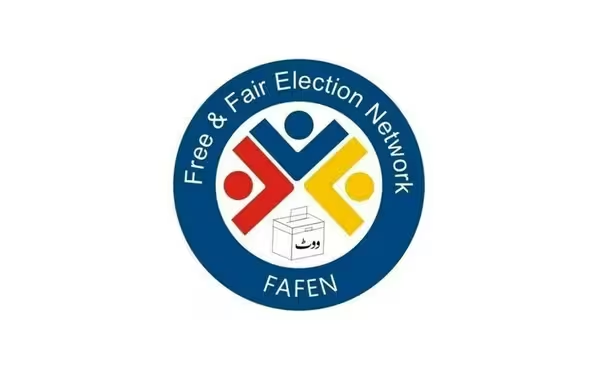Saturday, November 16, 2024 08:36 PM
FAFEN Report Highlights Election Tribunal Backlog in Pakistan
- 89% of election petitions unresolved beyond 180 days
- Only 11% of petitions disposed since elections
- Balochistan tribunals outperform others in case resolution
 Image Credits: brecorder
Image Credits: brecorderFAFEN's report reveals a troubling backlog in Pakistan's election tribunals, with 89% of petitions unresolved beyond the legal timeframe.
In the wake of the recent general elections held on February 8, 2024, the Free and Fair Election Network (FAFEN) has released a concerning report regarding the performance of election tribunals in Pakistan. The report highlights a significant backlog in the resolution of election dispute petitions, revealing that a staggering 89 percent of these petitions remain unresolved beyond the legally mandated 180-day period. This situation raises serious questions about the efficiency and effectiveness of the electoral dispute resolution process in the country.
According to FAFEN, only 11 percent of the election-related petitions have been disposed of by the tribunals since the elections. Out of a total of 334 petitions identified, only 40 have been resolved as of October 10, 2024. This includes four petitions related to National Assembly seats and 36 concerning Provincial Assembly seats. The report indicates that Balochistan's tribunals have performed relatively better, resolving more than half of their cases, with 28 out of 51 petitions decided. In contrast, Punjab's tribunals have only managed to resolve two out of 155 petitions, and none from the Islamabad Capital Territory (ICT).
The slow pace of disposals is compounded by the late establishment of tribunals in Punjab, following a prolonged legal dispute with the Lahore High Court. This delay, coupled with the sluggish progress in other provinces, suggests that the resolution of pending petitions may not occur in a timely manner. Most of the petitions that have been resolved were dismissed on technical grounds, with many being deemed non-maintainable due to failure to meet mandatory legal requirements.
Among the 40 disposed petitions, only three were accepted, all of which were filed by losing candidates from Balochistan's Provincial Assembly elections. These petitions, submitted by candidates from Jamiat Ulema-e-Islam Pakistan (JUIP) and a National Party (NP) candidate, challenged the victories of candidates from the Pakistan Peoples Party Parliamentarian (PPPP) and Balochistan Awami Party (BAP). The accepted petitions resulted in orders for re-polling at specific polling stations.
The report also sheds light on the reasons behind the dismissal of the majority of petitions. Out of the 37 dismissed petitions, 11 were rejected for not complying with legal requirements, 15 lacked sufficient evidence, and seven were withdrawn by the petitioners. This raises concerns about the preparedness of candidates and their legal teams in navigating the electoral process.
In summary, the FAFEN report paints a troubling picture of the current state of election tribunals in Pakistan. The significant backlog and slow resolution of disputes not only undermine the integrity of the electoral process but also erode public confidence in the democratic system. As the country moves forward, it is imperative for the relevant authorities to address these issues promptly, ensuring that electoral disputes are resolved efficiently and transparently. This will not only uphold the rule of law but also reinforce the faith of the electorate in the democratic process.













